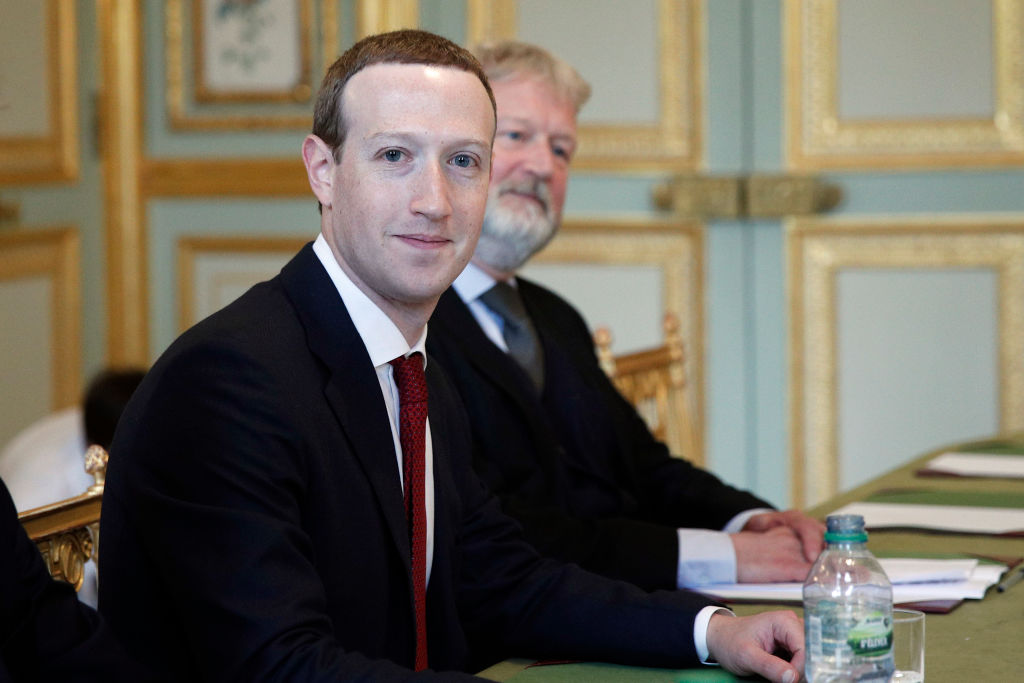The Federal Trade Commission’s decision to fine Facebook $5 billion for privacy violations is an expensive slap on the wrist that will do little to change anything in what is developing as a titanic struggle between the nation states (governments) and the new market states (technology companies).
Across the world, the nation states are struggling to keep pace with technology developments and largely failing. Meanwhile, the nation states are proceeding at breakneck speed to develop a world of their choosing where countries become less and less relevant to the course of our future history.
The FTC fined Facebook for a series of ethics and privacy violations and imposed the largest fine in the FTC’s history. As news of the fine leaked out, Facebook’s share price went up – an indication of how the market judged the fine and how ineffectual the FTC now seems to be. This is the first round in what will be an extended effort by Washington to control the new market states like Google, Facebook, Amazon and Airbnb.
But, government moves at the pace of the mid-20th century, while tech’s pace is growing exponentially. The various bureaucracies are pushed into action not by timely knowledge or concern but instead by a highly politicized Congress. Meanwhile, Big Tech cares about progress and not politics.
The government struggles to understand the nature of the unfolding revolution and continues to look to the past for signposts to a future that is, in many ways, completely virgin territory. What is perhaps most extraordinary is that the government, which creates laws and enforces them, has allowed the technology revolution to unfold and gather pace without any guidance about what is right or wrong, what behaviors should be acceptable and what not.
There are no ethics guidelines for the technology revolutionaries, no frameworks of any kind within which technology should be allowed to develop. Instead, it has been left to the tech companies to decide for themselves how their world should work. Their decisions are driven more by what is technically possible than what is moral or ethical and so a kind of moral limbo has unfolded where nobody really knows the difference between right and wrong.
Already, whole swathes of what would have been considered government responsibilities have been outsourced or taken over by the tech sector. Intelligence used to be the prerogative of government with a clear mandate to protect and defend the nation. Today, Facebook and Google know far more about each of us than the CIA or NSA ever will. It is the tech companies that can now confidently predict our behaviors both now and in the future.
The proliferation of private sector cyber defense and analytics companies graphically demonstrates the shift in knowledge and power from nation to market state. Even if government itself, in the shape of various administrations, might not recognize this reality, the intelligence community does and has hired many of these security companies to deliver intelligence they cannot obtain with their outdated and overwhelmed sources and methods.
Tactical success for the intelligence community means a massive strategic shift to the private sector. When data is the world’s most valuable resource, its accumulation means knowledge and power for the tech companies.
Left to its own devices, education, perhaps the most conservative of all government endeavors, would remain a constant in the face of change elsewhere in society. When all knowledge will soon be available courtesy of Dr Google, it makes little sense to continue to teach children in the same way and about the same subjects as happened with previous generations.In 2014, Elon Musk pulled his five children from a prestigious private school where he thought they were being poorly educated. Instead, he set up his own school, called Ad Astra, for his children and those of other like-minded parents. Instead of teaching knowledge, the school’s curriculum is focused on creativity and problem-solving, two skill sets that Musk considers will have real market value in the future.
Where Musk has gone, many other wealthy parents will follow to create a new and uniquely qualified uber class.
The government has done nothing to meet the challenge of creating a new generation of graduates qualified for a future world that is emerging at such speed. Instead, the conversation among teachers and the bureaucrats in the educational establishment is all about maintaining and measuring the status quo.
Part of this complacency is driven by the uniquely strong jobs market which has been booming for 105 consecutive months keeping the employment rate at 3.7 percent and wages above inflation at 3.1 percent. The administration continues to talk the strong economy and about restoring manufacturing jobs. But, there is a fundamental disconnect between government rhetoric and business reality. The idea that any government can stand, like Canute in the waves, and hold back the tsunami of technology change is laughable. Manufacturing jobs will die in their tens of millions and it is those workers who will be looking for help in dealing with whatever comes next.
Some of this is possible to predict with accuracy today. The Amazon Go cashierless grocery store puts at risk 3.5 million US jobs, autonomous cars a threat to 3.5 million truck drivers and Google’s AI assistant a threat to 2.2 million call center jobs. Further up the job food chain, radiologists will be largely irrelevant with accountants and lawyers replaced by AI algorithms. There will be a mass extinction event impacting every single sector of the jobs market.
Outside the government, there seems to be agreement that the scale of the job losses over the next 10-15 years will be enormous although there remain arguments about when the worst impact will occur and how many new jobs might be created. Inside the government, there is no jobs retraining program and no sense of the urgency with which the private sector is beginning to approach the problem.
This has given rise to a new term – reskilling – which for companies like Amazon and Microsoft means stepping into the vacant government breach to develop their own programs to ensure that they have a workforce that is trained and relevant to the future.
Amazon will be putting $700 million into reskilling 100,000 employees, one third of its US workforce, over the next six years. McDonald’s is spending $150 million on college scholarships for employees and their families and a further $100 million on reskilling employees for new tech jobs.
For companies like IBM or even for Amazon itself, there is a huge market play in vesting for this future world of tech jobs. The World Economic Forum estimates it will cost $20 billion to retrain the 77 percent of the US workforce at risk of displacement by the AI revolution.
Whatever the FTC, the administration or any part of the government bureaucracy may try and do, there is clearly a huge transfer of power away from the nation state and into the hands of the market state. What this will mean over the long term, nobody knows but it is already clear that in many areas of economic life, the traditional government roles are no longer fit for purpose.


















